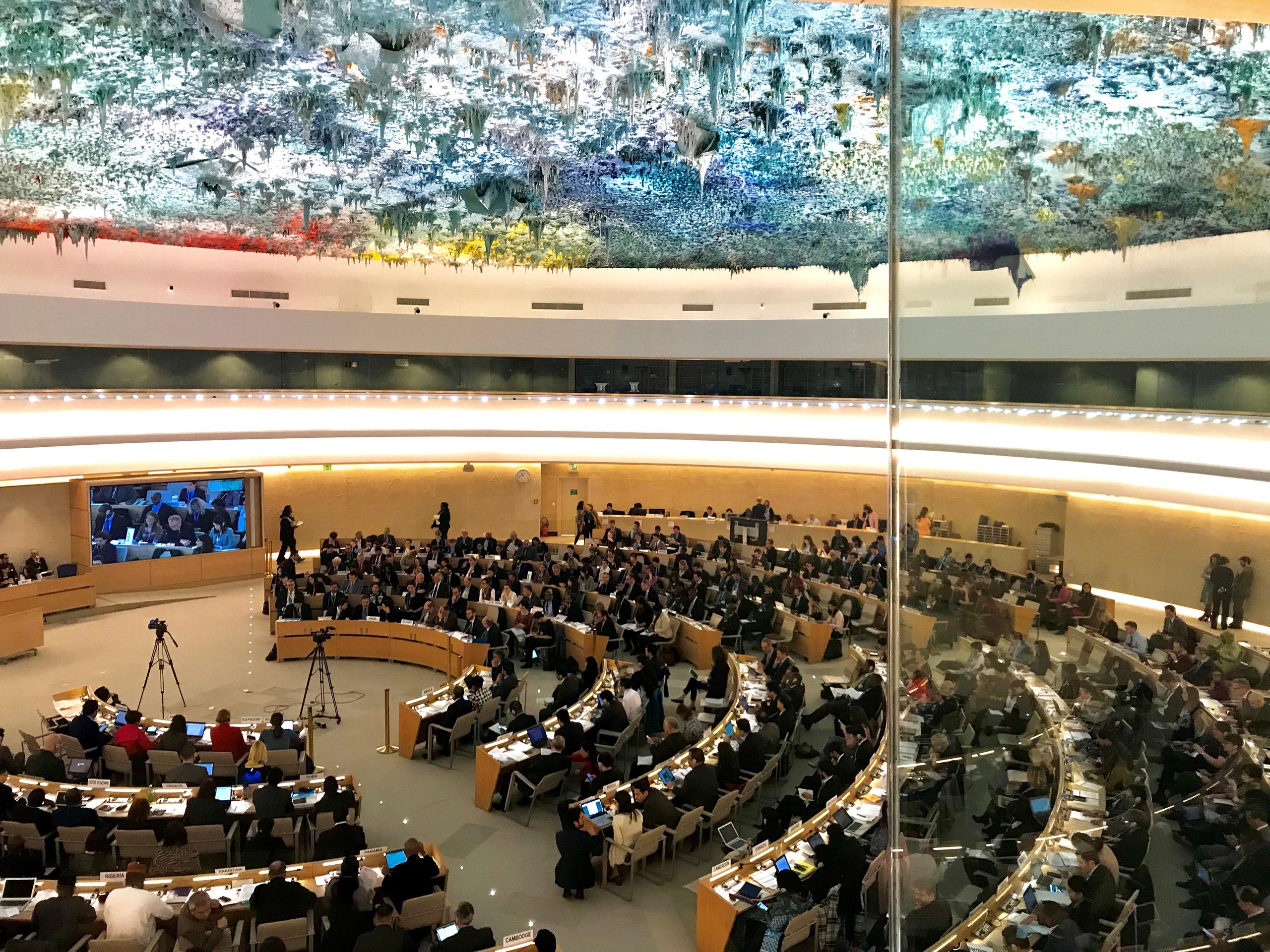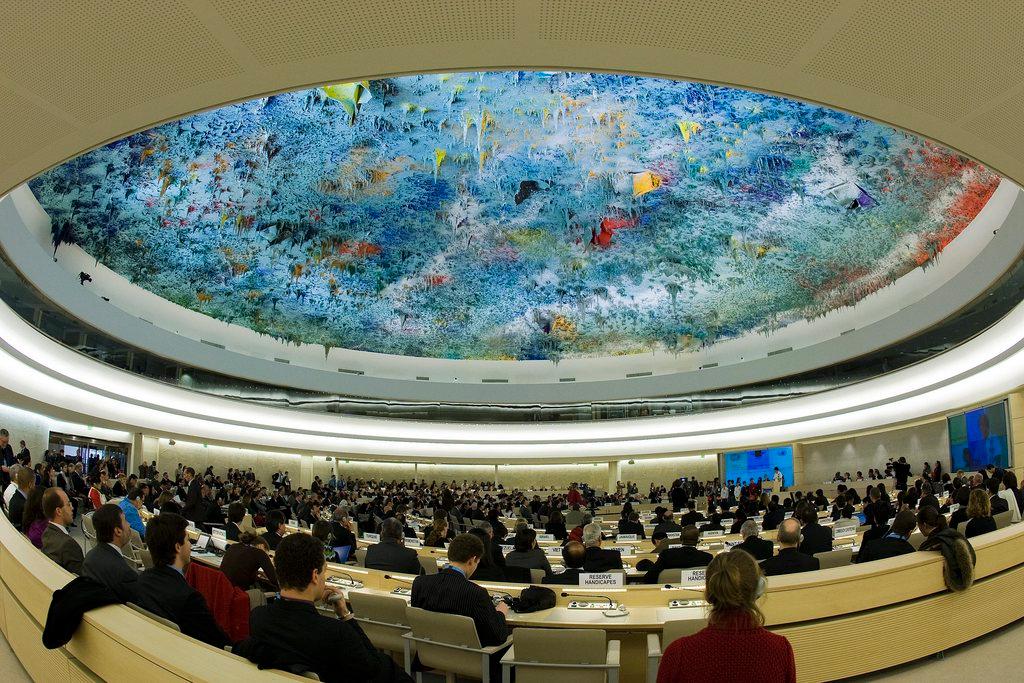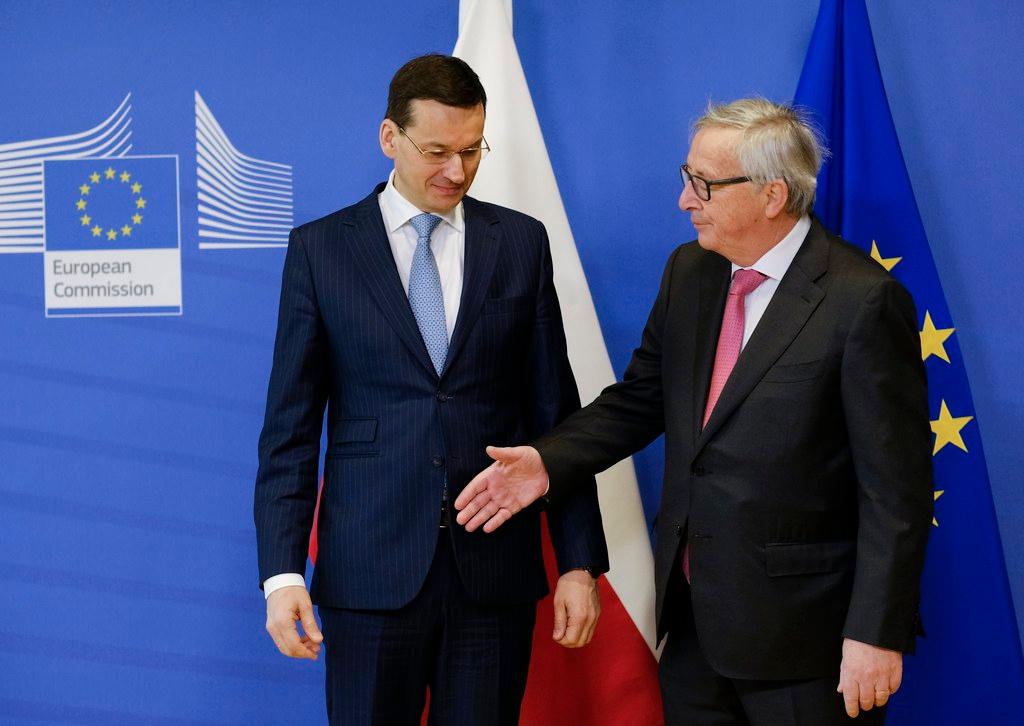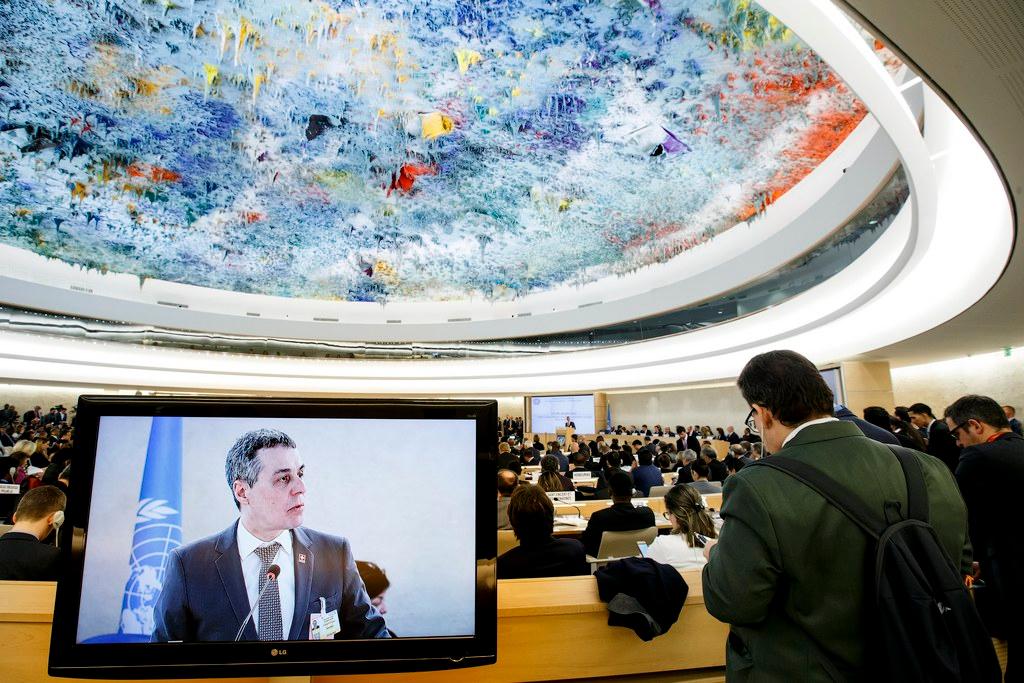China’s ‘win-win’ rights initiative makes waves in Geneva

A Chinese resolution calling for "mutually beneficial cooperation" on human rights issues was adopted at the United Nations Human Rights Council last week. But activists and several countries, including Switzerland, say it actually weakens human rights principles.
“The Chinese resolution is the first stage of a major step backwards,” Geneva-based human rights specialist Adrien Claude Zoller told swissinfo.ch, calling it “THE major event” of the Human Rights Council’s 37th sessionExternal link.
At first glance, Beijing’s resolution at the Human Rights Council – its second-ever in nearly a dozen years – calling for the promotion of “mutually beneficial cooperation” between states on human rights seems relatively innocent. The text, full of diplomatic language such as “universality” and “international constructive dialogue”, was adopted on Friday evening by 28 votes to one, with 17 abstentions.
Cold War-era policy?
But it nonetheless upset many diplomats and human rights campaigners in Geneva. Australia, Britain, Japan, and Switzerland were among those abstaining, though many envoys spoke out against the text.
Ahead of Friday’s vote, Switzerland said the resolution contained “vague and ambiguous language that weakens fundamental human rights principles”.
While welcoming “constructive international cooperation as a means of promoting and protecting human rights”, Switzerland’s ambassador to the UN in Geneva, Valentin Zellweger, stressed that human rights-related mandates need to be able to act quickly and work efficiently to prevent crises. Civil society, he added, must be able to play a crucial role in protecting against and addressing violations.
Zoller said the resolution recalled certain language and concepts heard during the Cold War when the Soviet Union also invoked the idea of “mutually beneficial cooperation”.
Killing the messenger
“The procedure put in place by the Chinese resolution involves putting an extra layer around the system of special procedures [such as independent investigations] and increasing pressure on them,” Zoller declared.
It amounts, he said, to an attempt to “kill the messenger” and complicate the work of the special rapporteurs who carry it.
“It attempts to do this by ignoring the monitoring bodies of human rights conventions [and returning] to the principle of non-interference.”
John Fisher, the Geneva-based director of Human Rights Watch, also criticised China’s strategy. His organisation last year issued a reportExternal link warning of Chinese interference in UN human rights mechanisms.
A failure of courage for each State which explained why #ChinaExternal link’s “mutually beneficial cooperation” resn distorts internatnl framework – but only abstained. How can defenders in China have confidence you’ll stand with them, if you won’t stand agst a resn you know is wrong? #HRC37External link pic.twitter.com/pZJFUpmMj3External link
— John Fisher (@JohnFisher_hrw) 23 mars 2018External link
US votes ‘no’
The United States cast the only “no” vote on the resolution, co-sponsored by states including Pakistan and Egypt.
US diplomat Jason Mack said China was using its resolution to try to weaken the UN human rights system and norms.
“The ‘feel-good’ language about mutually beneficial cooperation is intended to benefit autocratic states at the expense of people whose human rights and fundamental freedoms we are all obligated as states to respect,” he said.
He added that Chinese spokespeople had clearly been trying to “glorify their head of state by inserting his thoughts into the international human rights lexicon”.
On Monday, China accused the Americans of arrogance for rejecting the Chinese resolution.
“I think the comments by this US official in Geneva…were extremely unreasonable, and also reflect the consistent ignorance and haughtiness of the US side,” Chinese Foreign Ministry spokeswoman Hua Chunying told a daily news briefing.
Many countries expressed at the meeting that the Chinese resolution reflected the common wishes of the international community and helped raise the ability of developing nations to speak for themselves on human rights issues, Hua added.
Translated from French by Simon Bradley

In compliance with the JTI standards
More: SWI swissinfo.ch certified by the Journalism Trust Initiative









You can find an overview of ongoing debates with our journalists here. Please join us!
If you want to start a conversation about a topic raised in this article or want to report factual errors, email us at english@swissinfo.ch.